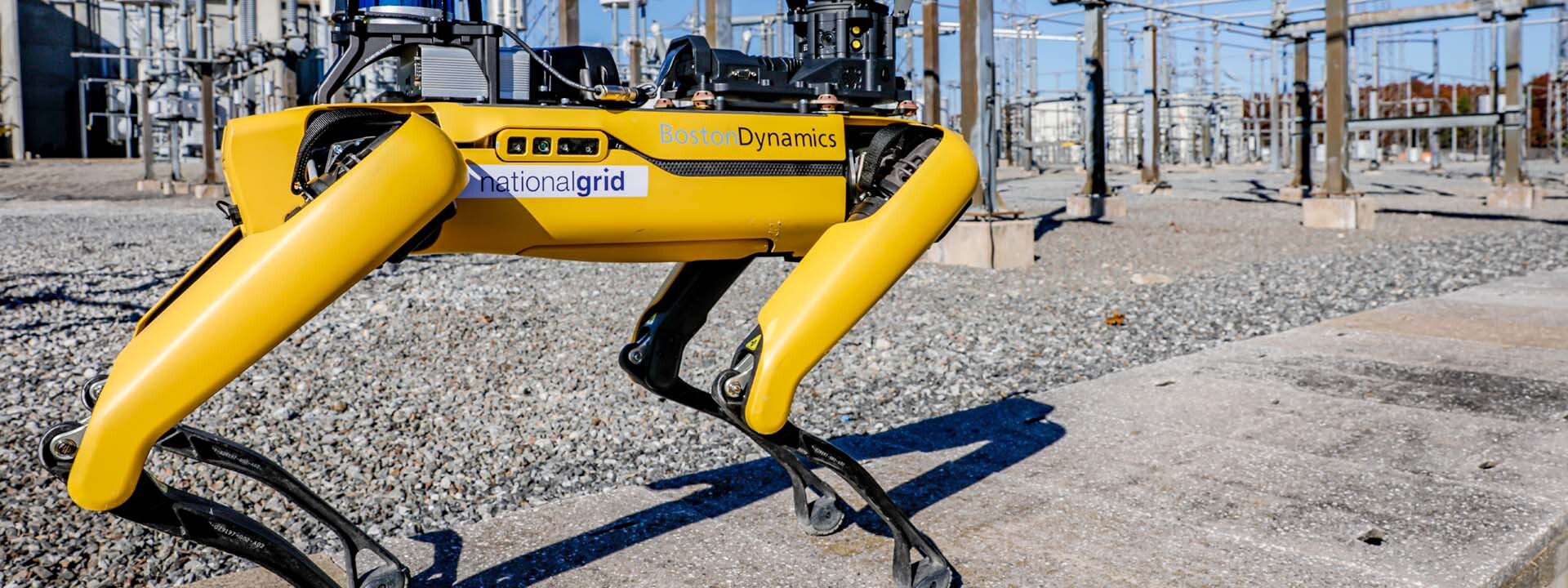Latest News
Boston Dynamics and IBM Join Forces to Bring Mobile Edge Analytics to Industrial Operations

By Skip Snyder, Vice President and Partner, IBM Global Intelligent Connected Operations Leader, IBM Consulting and Mike Pollitt, Chief Sales Officer, Boston Dynamics The demand for AI-driven...
By Skip Snyder, Senior Partner, IBM Consulting and Mike Pollitt, Chief Sales Officer, Boston Dynamics
The demand for AI-driven robotics is increasing in operations like those in manufacturing and warehouse settings to help organizations with data and analytics that identify problems in real time, improve decision making, and perform tasks more efficiently. But to experience the true benefits, these operations need AI as close to the origin of the data as possible.
According to an IBM Institute for Business Value (IBV) survey, 56 percent of manufacturers have implemented AI-driven robotics to make autonomous decisions, while 83 percent agree intelligent automation will help their organization meet strategic challenges and improve business results. However, businesses point out that most edge and IoT devices today are stationary, inflexible and often incapable of responding to rapidly changing environments.
To address this challenge, IBM and Boston Dynamics have announced a new alliance focused on delivering data analysis at the edge to help industrial companies improve worker safety, optimize field operations, and boost maintenance productivity in environments like manufacturing facilities, power plants, warehouses and more. Enabled by AI and hybrid cloud innovations from IBM Research, IBM Consulting will develop edge payloads that integrate with Spot, the agile, mobile robot from Boston Dynamics.
As industrial clients look to robotic solutions, Boston Dynamics and IBM are transforming Spot into an intelligent roaming edge device, designing it to give operations staff greater flexibility to inspect and monitor their equipment with dynamic sensing.
National Grid, a leading electric and gas utility serving Massachusetts and New York has been actively testing the new technology. Spot has already begun conducting regular autonomous inspections at National Grid sites, and the integration of IBM advanced AI adds a new layer of actionable intelligence by processing the data into meaningful insights to enable faster response times when an issue is detected. The three companies are working together to field test a near real-time inferencing capability that incorporates thermovisual analysis from inspection data collected by the robot. Ultimately, that analysis should help identify hotspots and other problems with station components that, if not corrected, could cause serious equipment failures and power outages. National Grid aims to use edge data processing to detect issues immediately, automatically notifying maintenance staff even before the robot completes its round.
Forward-thinking industrial companies like National Grid are already using mobile robots as a tool for gathering massive amounts of equipment data in a highly reliable, repeatable way that collaborates with human operators. The next challenge is how to make all that data useful without requiring hours of manual interpretation or by using disjointed analytics tools in a backend process. IBM brings the analytics and AI to interpret data in near real-time and drive action through dashboards and integration with an enterprise asset management (EAM) system. National Grid brings the asset management knowledge needed to maintain their network reliability. Looking ahead, the collaboration aims to add new capabilities to Spot; which could include the ability to generate an automated work order or send an alert to initiate corrective actions.
Industrial operations staff can benefit from the Boston Dynamics and IBM collaboration in several important ways. First, the mobile robot is designed to help address safety concerns for inspectors for inspections in hard-to-reach or hazardous areas. Next, it equips operations managers with near real time insights on equipment health so they can initiate actions that improve equipment function and uptime. Finally, the added productivity gained means National Grid and other operators should spend less time on basic inspection rounds; instead, Spot can conduct inspections consistently and frequently, freeing up the team to focus on higher value work.
All these new sensing capabilities should also be able to scale across multiple sites and many types of equipment. To do so, IBM will apply its tools and expertise in edge, 5G, security and hybrid cloud. Also key to scaling is integration to client asset management systems, such as the IBM Maximo Application Suite, which helps companies monitor, manage and maintain their assets.
As these capabilities scale, the combination of Boston Dynamics’ Spot along with the expertise of IBM Consulting can help clients bring the future into reality.
Statements regarding IBM’s future direction and intent are subject to change or withdrawal without notice, and represent goals and objectives only.